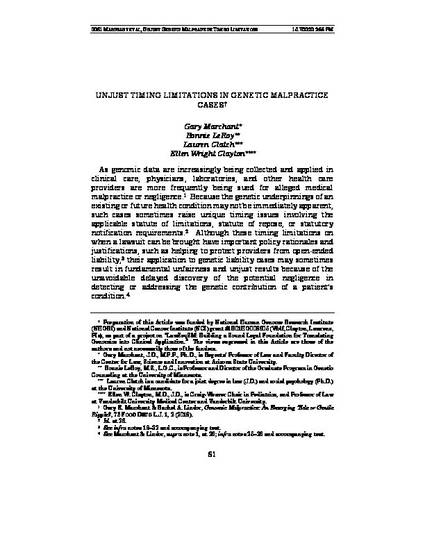
- genetic malpractice,
- health care providers,
- timing limitations
As genomic data are increasingly being collected and applied in clinical care, physicians, laboratories, and other health care providers are more frequently being sued for alleged medical malpractice or negligence. Because the genetic underpinnings of an existing or future health condition may not be immediately apparent, such cases sometimes raise unique timing issues involving the applicable statute of limitations, statute of repose, or statutory notification requirements. Although these timing limitations on when a lawsuit can be brought have important policy rationales and justifications, such as helping to protect providers from open-ended liability, their application to genetic liability cases may sometimes result in fundamental unfairness and unjust results because of the unavoidable delayed discovery of the potential negligence in detecting or addressing the genetic contribution of a patient's condition.
Available at: http://works.bepress.com/ellen-clayton/28/
